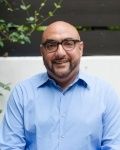

Scholars and Citizens
Source/Author: Diego Duran-Medina, Director of Service Learning
December 28, 2016
Originally published in Independent School Magazine, Winter 2017.
Independent schools have a responsibility and the opportunity to define, or redefine, what it means to become a scholar citizen and to improve upon outdated notions of citizenship beyond voting or volunteering. In doing so, they not only help students develop new skills but also help strengthen our democracy. Students can learn about the past and the present while shaping a more positive future. They can move past simply taking part in a service project to actively shaping and defining issues through their actions and voices, helping forge a new concept of global citizenship.
Independent schools have long been great at developing scholars, but today they must also develop global citizens— not just in name but in action. What do schools need to do to help students develop the skills to be true global citizens today? Teaching the new skills for global citizenship requires consideration of three related, yet distinct, spheres: civic engagement, research skills, and social media.
Schools often define civic engagement by the teaching of history and civics (social studies and history) or encouraging students to vote (a right and privilege most will exercise toward the end of their high school careers or once they have actually left their schools). A more evolved definition of civic engagement is deeper involvement in the service continuum, whether through community service or service tied to the curriculum (service learning).
The problem is that schools run the gamut in terms of engaging in meaningful service, and outcomes differ even for those schools that have a clearly defined public mission of serving local, national, or international needs. The larger, more pressing question is this: Once a student has learned about a problem or an issue, what do they do about it, beyond the actual service or presentations about the service at their schools? Where is the space for students to develop the intellectual and emotional skills to exercise what it means to become a competent and engaged global citizen in school and beyond? Such an education is not only about teaching citizen responsibilities and rights but also about helping each student develop the actual ability to use his or her voice to spur action and to speak on an issue. It is about helping students move from the what to the why and from the effects of a problem to the root causes.
It is my wish that all independent schools purposefully create academic spaces — actual classes with qualified instructors and time in the school schedule and calendar — in which students can actively research, debate, and present issues to a global audience through social media. Through these spaces, students can move from simply consumers of media to creators of messaging on critical social issues.
At every independent school in which I have worked (in Washington, DC, New York City, Colorado, and Florida), I have created a class at the high school level where students explore the intersection among values, social issues, activism, and technology. After working with hundreds of students on these issues and through different iterations of the pedagogy —activism, artivism, mediavism, citizenship, and service — I have come to see that the one unifying thread among them is the school commitment to curriculum, space, and time. When we give students the space and time to develop these critical citizenship skills, every student has the ability to serve the world through his or her particular concern and passion. What is crucial is not the kind of activism— each student and school will define its political stance — but more the creation of academic spaces where students and teachers can combine critical research with personal interests so students can work both from the head and the heart. With the time dedicated to identifying and debating key issues, to developing the research skills to be experts on their subjects, and to learning how to leverage change through social media, our students can develop the ability to act on their convictions to serve local, national, and global audiences.
Independent schools have a responsibility and the opportunity to define, or redefine, what it means to become a scholar citizen and to improve upon outdated notions of citizenship beyond voting or volunteering. In doing so, they not only help students develop new skills but also help strengthen our democracy. Students can learn about the past and the present while shaping a more positive future. They can move past simply taking part in a service project to actively shaping and defining issues through their actions and voices, helping forge a new concept of global citizenship.
























